Hydroponic gardening mistakes – 5 common errors killing your indoor garden
There are a few things to keep in mind to grow plants in water successfully
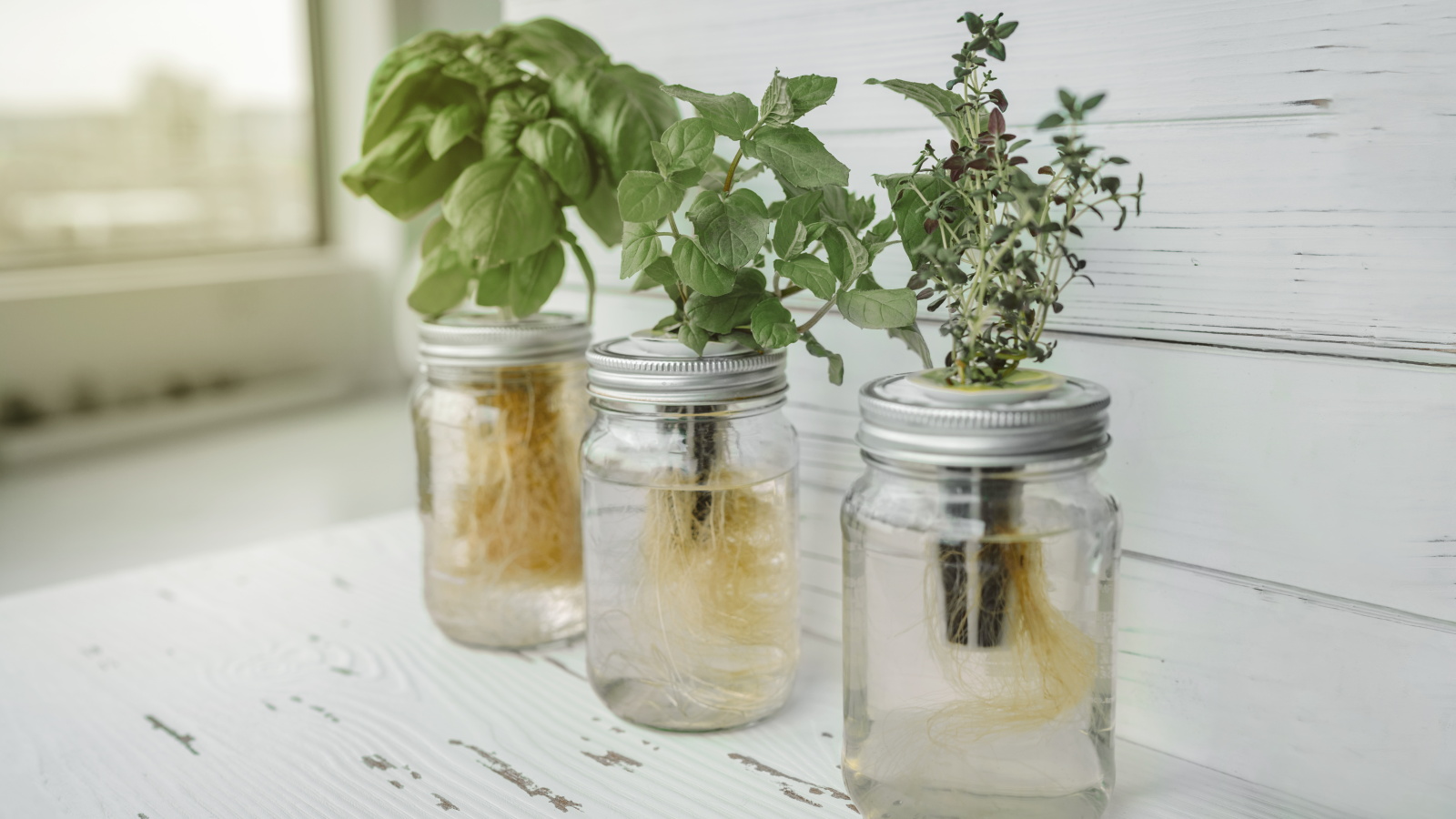

Hydroponic gardening has become a go-to for indoor gardeners in recent years. It involves growing plants in water, allowing you to grow your own vegetables, herbs and ornamentals indoors.
There are plenty pros and cons of hydroponic gardening, including the fact it's an indoor growing system that is relatively low-maintenance. However, this doesn't mean you can neglect your hydroponic garden entirely. There are a few things you need to keep on top of in order to grow in water successfully.
If you're new to hydroponics or are struggling to get your indoor garden thriving, it might be down to one of these hydroponic gardening mistakes. Here, experts share how to avoid them.
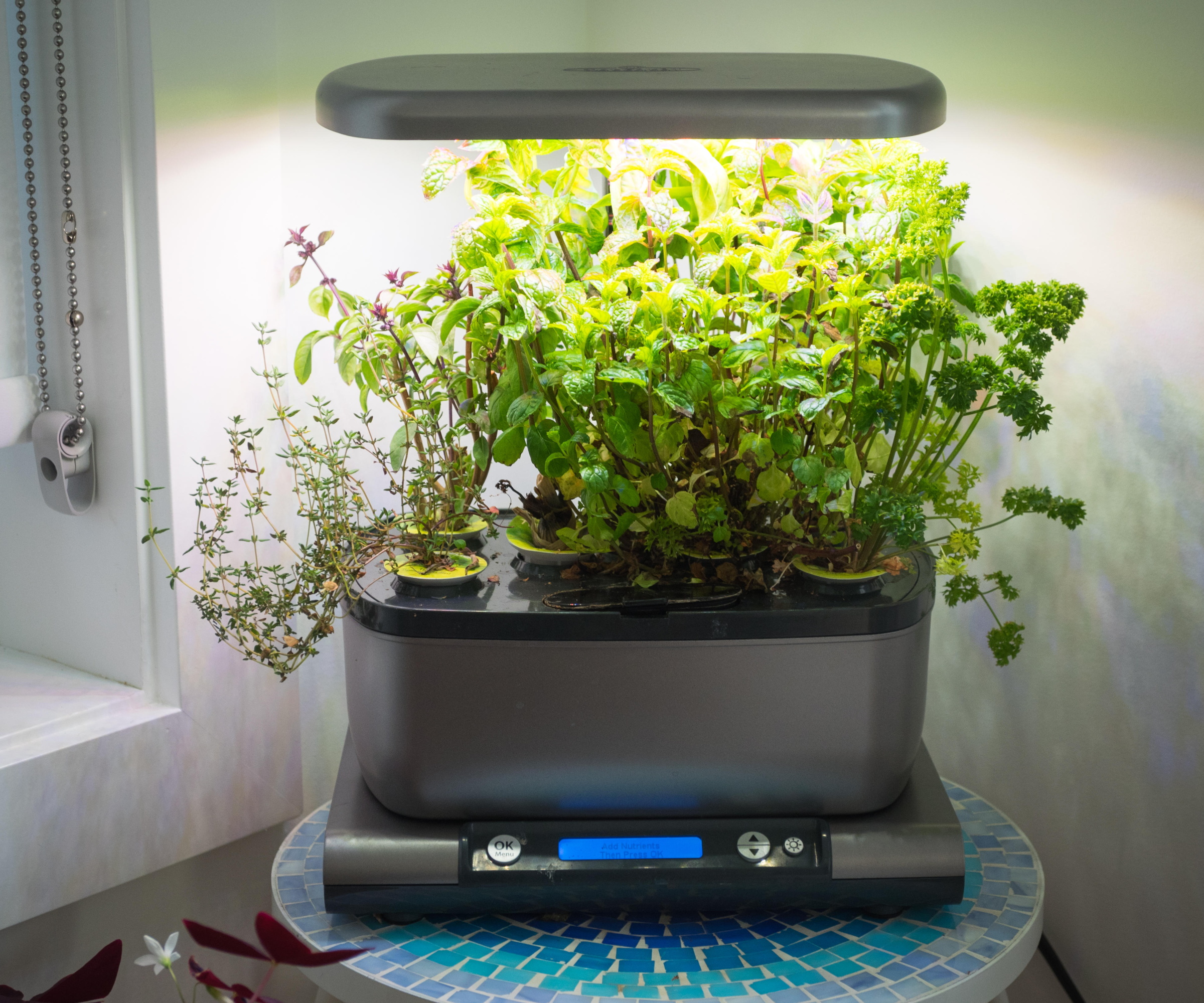
5 hydroponic gardening mistakes
Not only is hydroponic gardening perfect for indoor gardens, but hydroponic gardening is also sustainable and often uses less resources than other growing methods. Nevertheless, making one of these hydroponic gardening mistakes can hinder your success with this growing technique.
1. Not changing the water
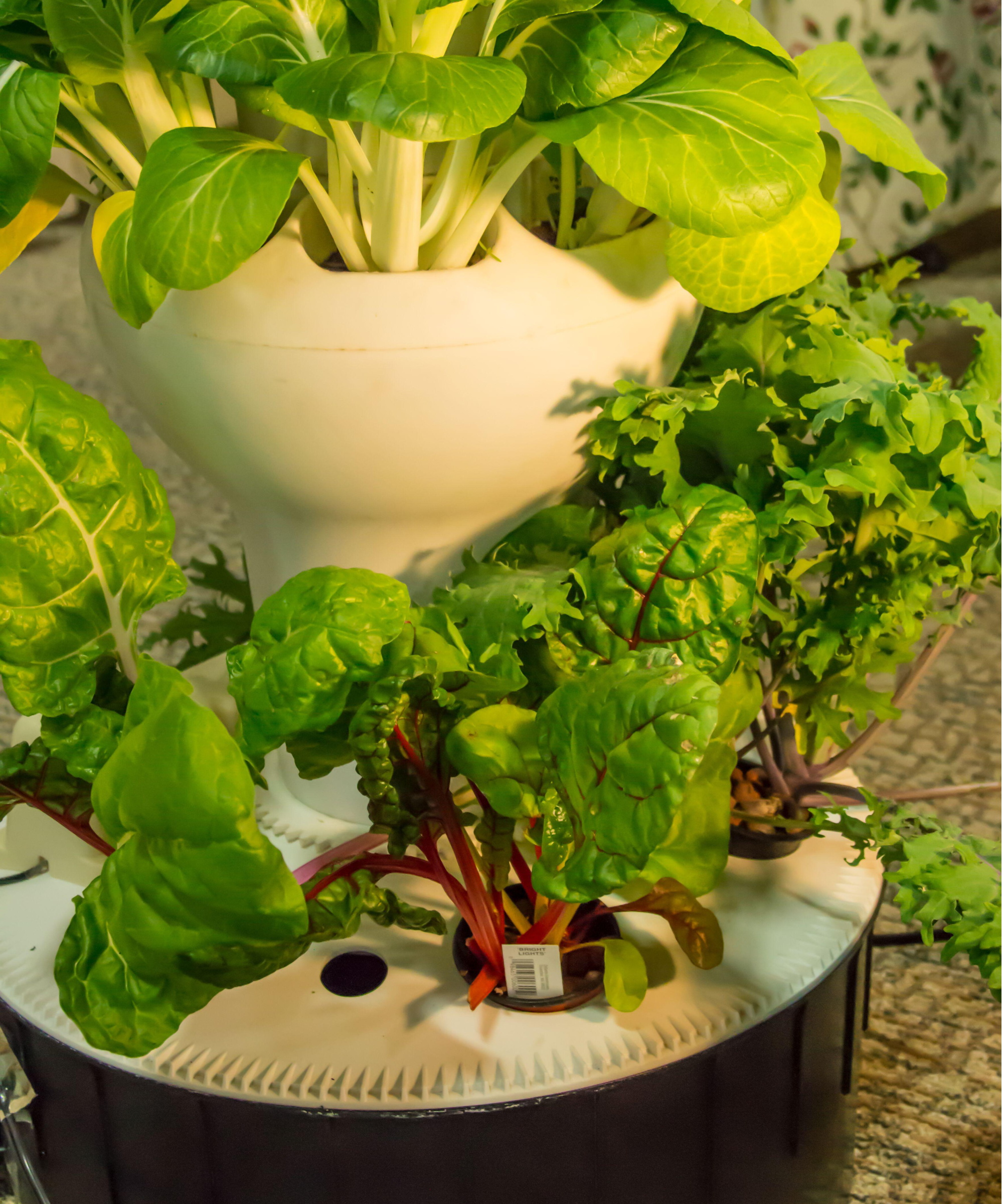
Just like water propagation mistakes, it can be easy to forget to change the water in your hydroponic garden. This can result in a range of problems for the health of your plants.
'Toxins and bacteria build up in unchanged water which can harm plant roots,' explains Julie Bawden-Davis, indoor gardening expert at Healthy Houseplants.
It doesn't matter if you're using a DIY hydroponic garden set-up, such as glass jars (from Walmart), or a smart hydroponic garden (like this one from Amazon), it's key to ensure the water is always clean.
'Routinely changing your water - at least weekly if you can - will go a long way in keeping your hydroponic plants in better shape,' says Raffaele Di Lallo, indoor growing expert from Ohio Tropics. Raffaele notes that changing out the water regularly will also introduce more oxygen for plant roots, an essential for healthy growth.

Julie Bawden-Davis is a garden author and University of California Certified Master Gardener, who has written several gardening books, including Indoor Gardening The Organic Way. In addition to running HealthyHouseplants.com, she shares indoor gardening advice on her YouTube channel @HealthyHouseplants.
2. Not using grow lights
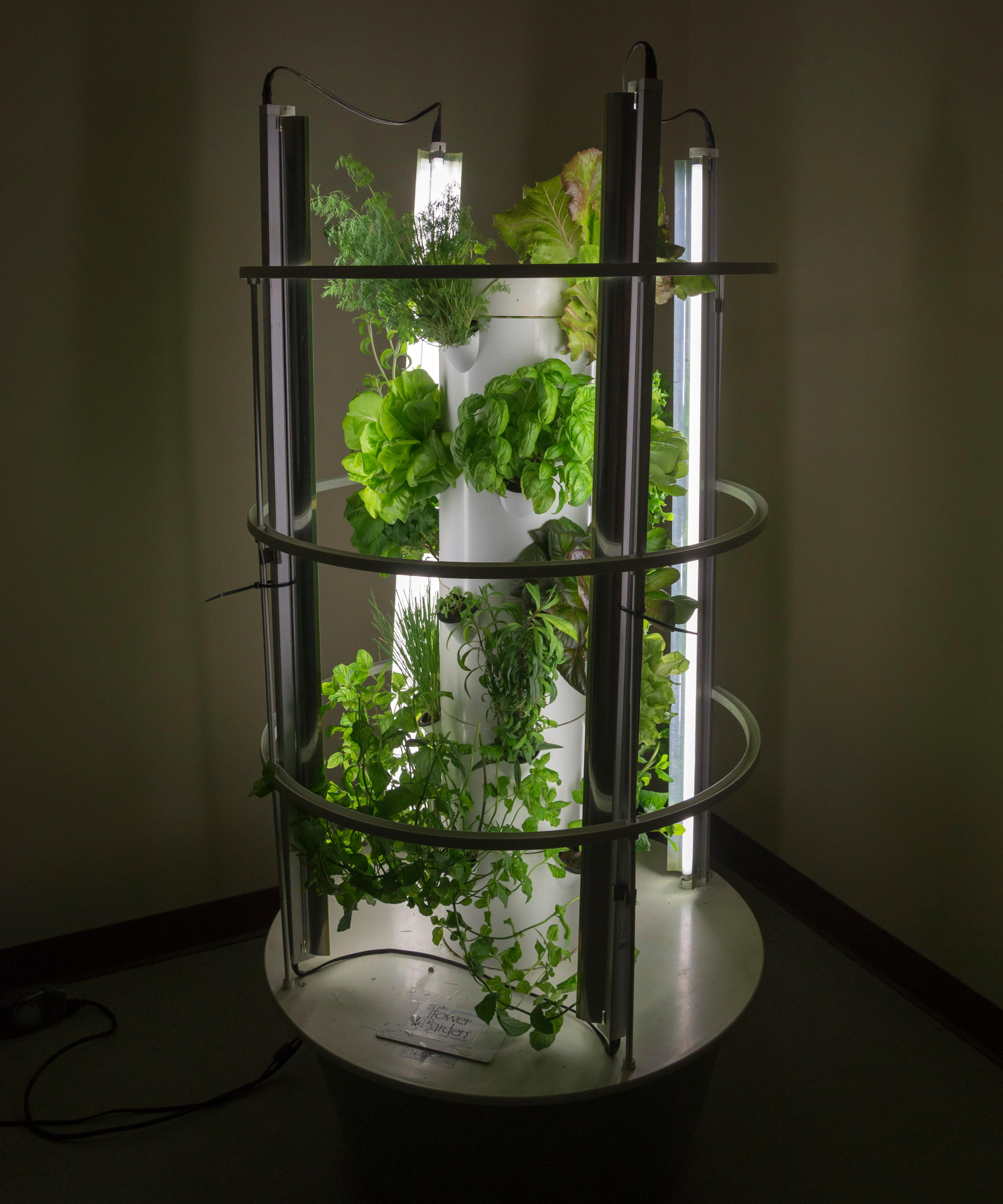
Although it is possible to grow plants hydroponically without glow lights, using them will see your hydroponic garden burst into life much more quickly.
'If you don't have bright enough windows, grow lights are amazing alternatives to keeping your hydroponic plants growing and in great shape, and you can place your plants anywhere you want,' Raffaele says.
Grow lights supplement natural sunlight and work well for houseplants in darker spots of your home. For hydroponic gardens, it can allow your plants to be exposed to the same spectrum as daylight, essential for healthy growth.
Many hydroponic garden systems have built in grow lights, but you can also find separate grow lights online (like this one at Amazon) and set it up above your hydroponic vessels. Opting for one with a timer also means you don't have to worry about turning it off again.
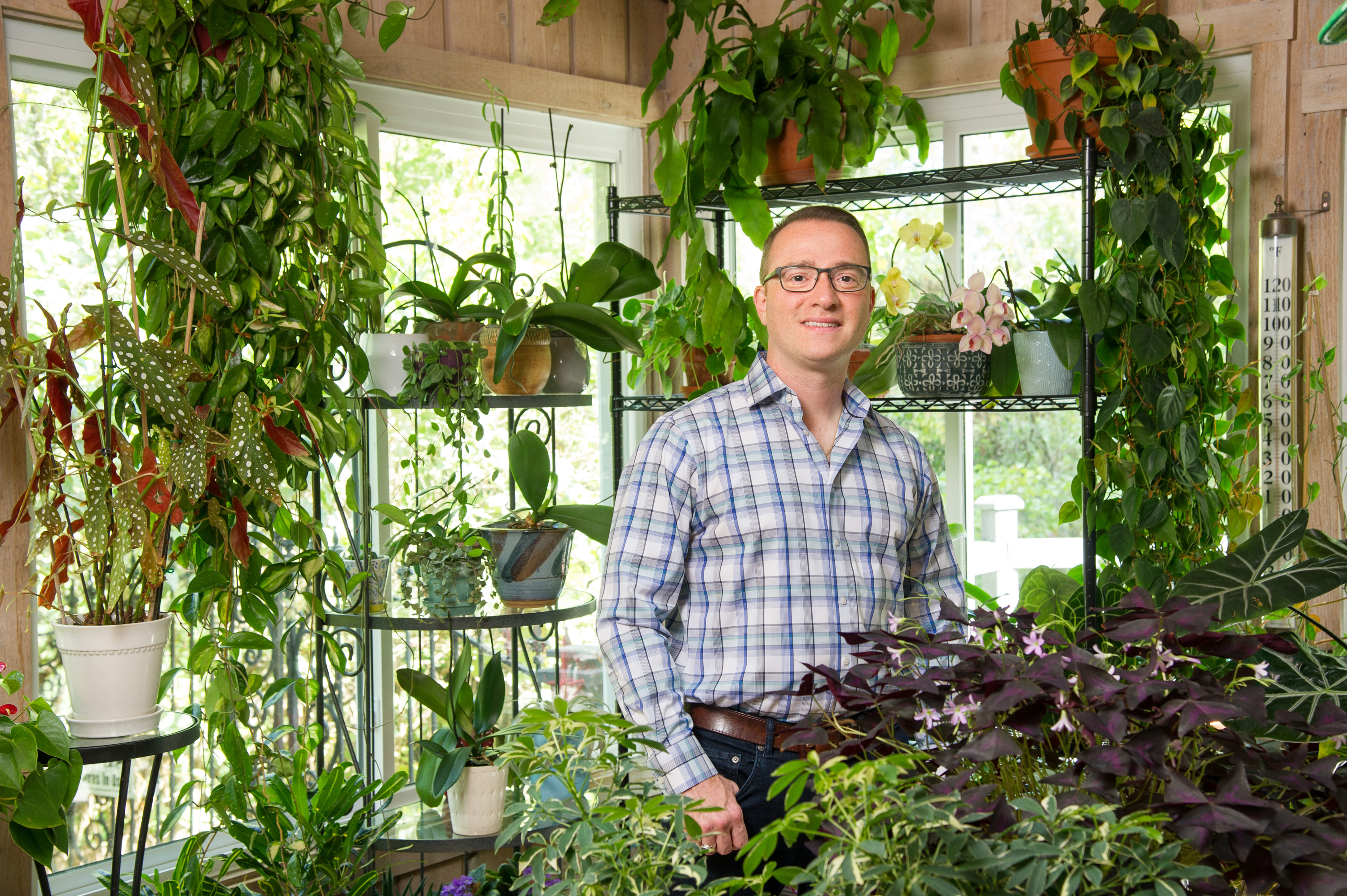
Raffaele Di Lallo is the founder of the blog Ohio Tropics which focuses on the care of houseplants and other tropical plants, both indoors and outdoors. He has a large following on Instagram where he gives plant care tips and is the author of Houseplant Warrior: 7 Keys to Unlocking the Mysteries of Houseplant Care, published by Countryman Press. Raffaele is a member of the National Garden Bureau.
3. Ignoring pH levels
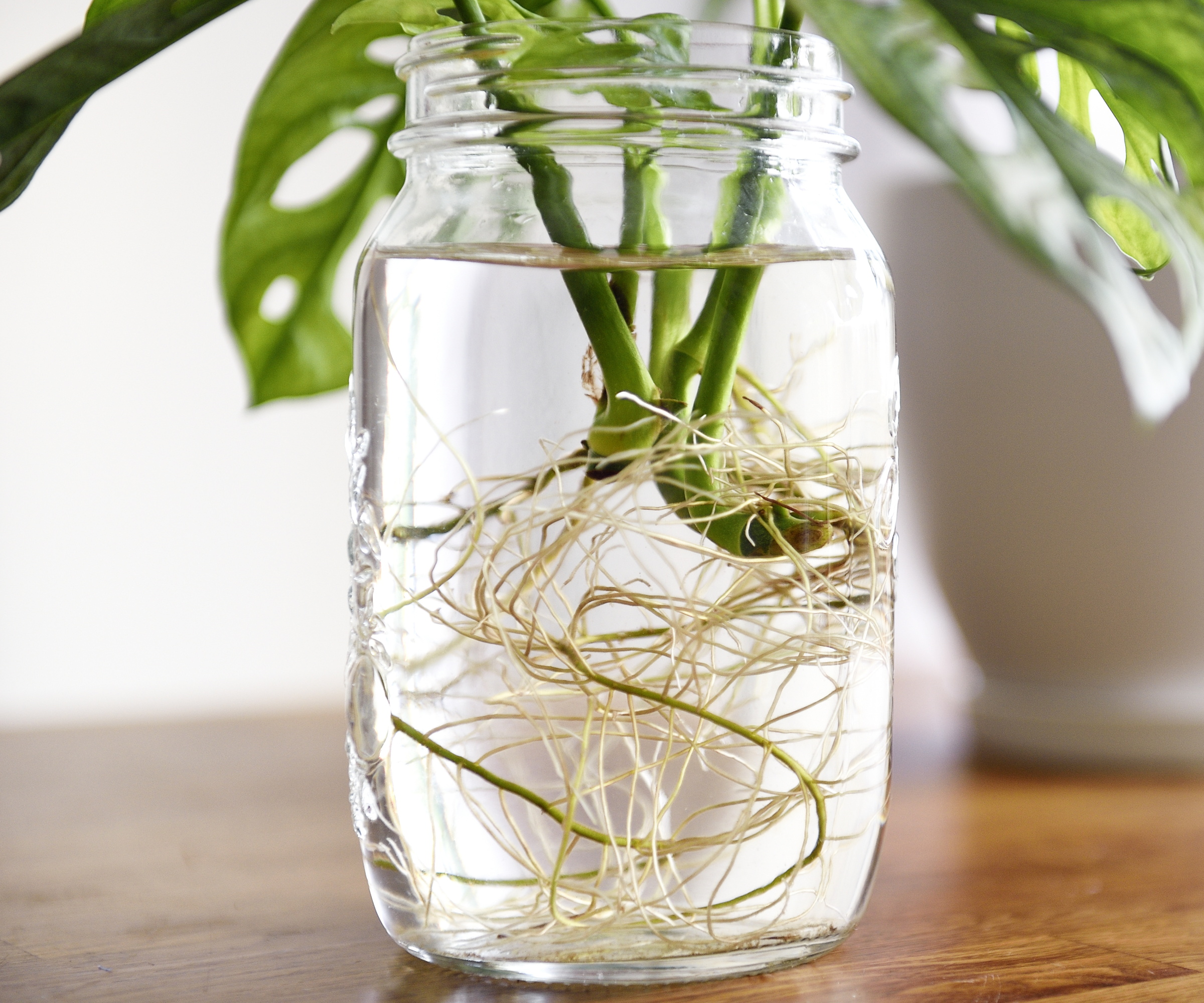
As well as ensuring your plants get all the essential nutrients for plant growth, it's important to ensure they're growing in the right pH.
'Proper pH levels are a critical component of hydroponic gardening and the difference between being successful and just having plants that barely survive,' says Julie.
'Educate yourself on the pH needs of the various plants you grow in water and learn how to test the water and use products, such as pH up and pH down, when needed,' she advises.
Use this digital water pH meter (from Amazon) to test the pH of water in your hydroponic garden. As Julie notes, you can then use pH up and pH down products - available at Amazon - to amend the pH level accordingly.
4. Not using fertilizer
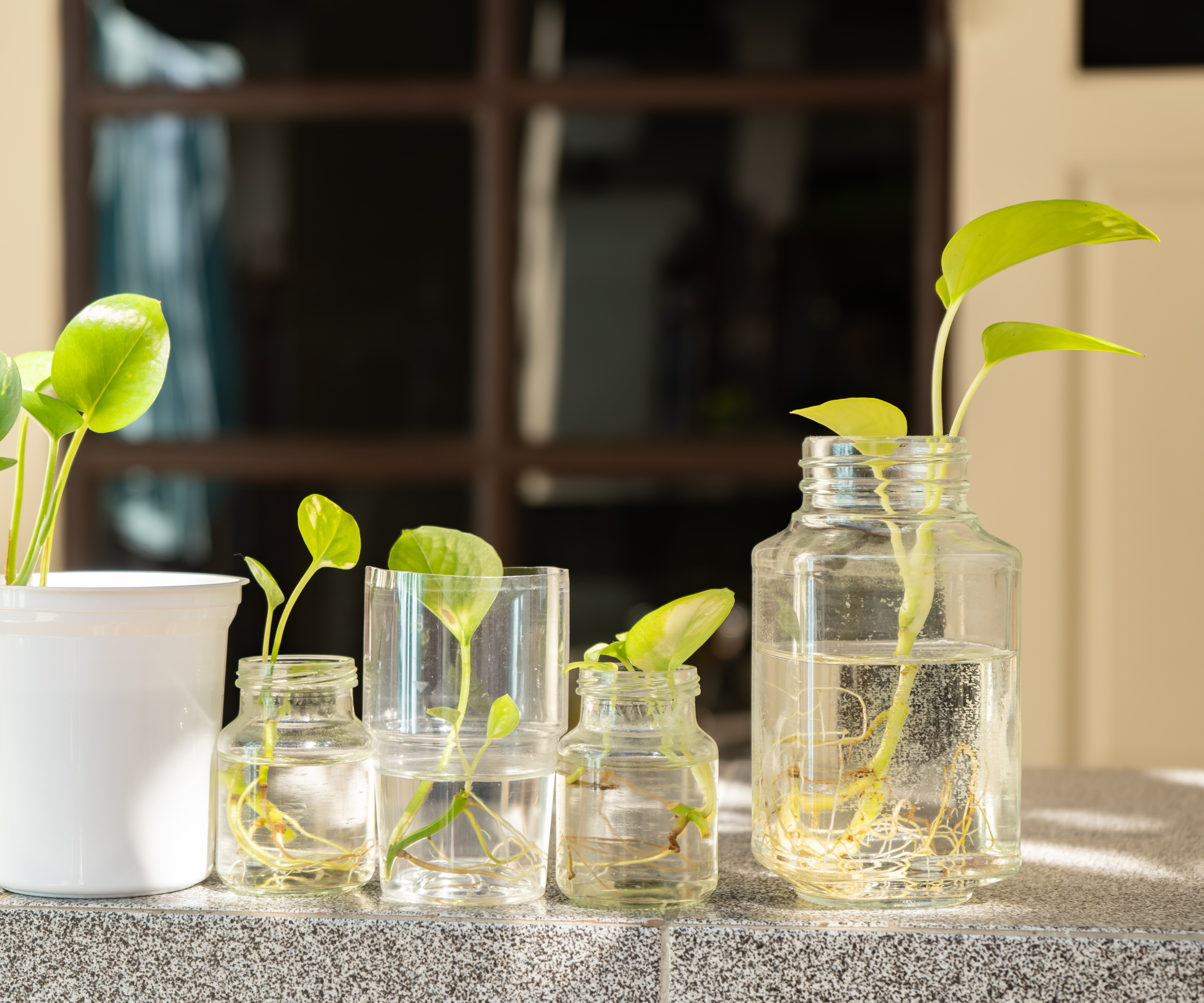
Plants get plenty of nutrients from water, the sun, and air. However, those growing in water are not receiving the nutrients available in a wide range of soil types. For this reason, it can be widely beneficial to feed your hydroponic garden.
'You can maintain plants with no fertilizer, but eventually they will get nutrient deficiencies and struggle to grow,' explains Raffaele. 'Adding a fertilizer to your hydroponic plants is therefore necessary,' he says.
You'll observe plant fertilizer numbers on commercial products which refer to how much nitrogen, phosphorus and potassium is in them. For general health, opting for a water soluble balanced fertilizer is a good option - like this one from Amazon.
If you have identified your plant has phosphorus deficiency, for example, rather opt for a fertilizer with a higher phosphorus number.
5. Growing with old seeds
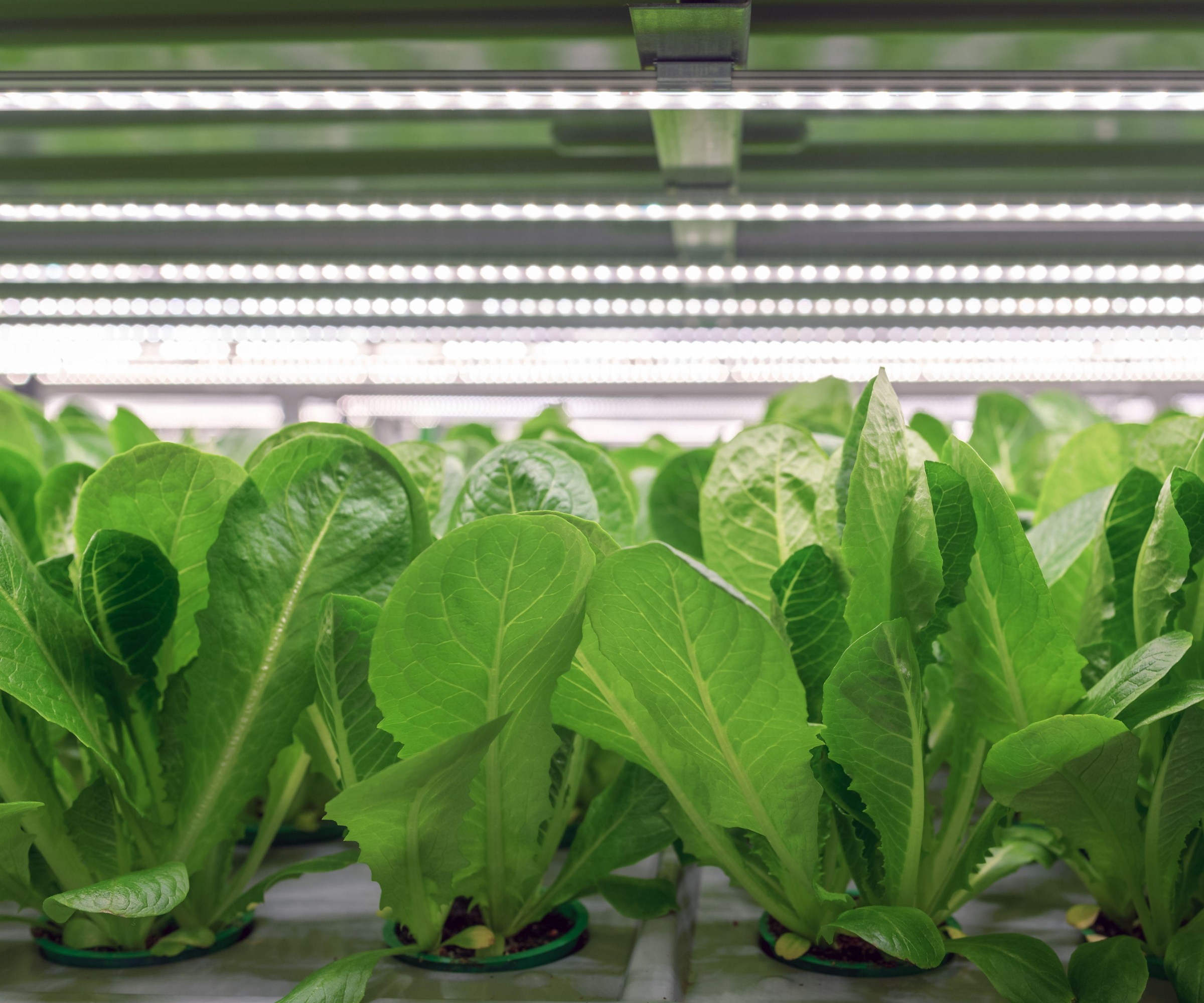
Every avid kitchen garden grower knows that if you aren't starting with quality seeds, you won't get quality crops. The same goes for hydroponics.
While some seeds will stay viable longer than others, a general rule is to sow seeds indoors and outdoors sooner rather than later. Seeds tend to stay viable for at least a year when you store seeds properly - bought seeds tend to state on the packet how long they can be stored for.
Seeds stored somewhere exposed to wet, warm conditions won't stay viable for long and may even sprout while in storage. Make sure to avoid these seed storage mistakes to keep your seeds in pristine condition for your hydroponic garden.
FAQs
Can you grow flowers hydroponically?
Yes, it is possible to grow flower hydroponically in the same set-up as a vegetable hydroponic garden. Bulbs do particularly well hydroponically, like hyacinths and tulips. You can also propagate flowers hydroponically, like rooting rose cuttings in water.
Many gardeners view hydroponics as a the future of indoor gardening. It can be a great way to grow carrots indoors, other veg, and even grow herbs indoors. No matter what you choose to take on in your hydroponic garden, avoiding these hydroponic gardening mistakes will make your efforts much more successful.
Sign up to the Homes & Gardens newsletter
Design expertise in your inbox – from inspiring decorating ideas and beautiful celebrity homes to practical gardening advice and shopping round-ups.

Tenielle is a Gardens News Writer at Homes & Gardens. She holds a qualification in MA Magazine Journalism and has over six years of journalistic experience. Before coming to Homes & Gardens, Tenielle was in the editorial department at the Royal Horticultural Society and worked on The Garden magazine. As our in-house houseplant expert, Tenielle writes on a range of solutions to houseplant problems, as well as other 'how to' guides, inspiring garden projects, and the latest gardening news. When she isn't writing, Tenielle can be found propagating her ever-growing collection of indoor plants, helping others overcome common houseplant pests and diseases, volunteering at a local gardening club, and attending gardening workshops, like a composting masterclass.
-
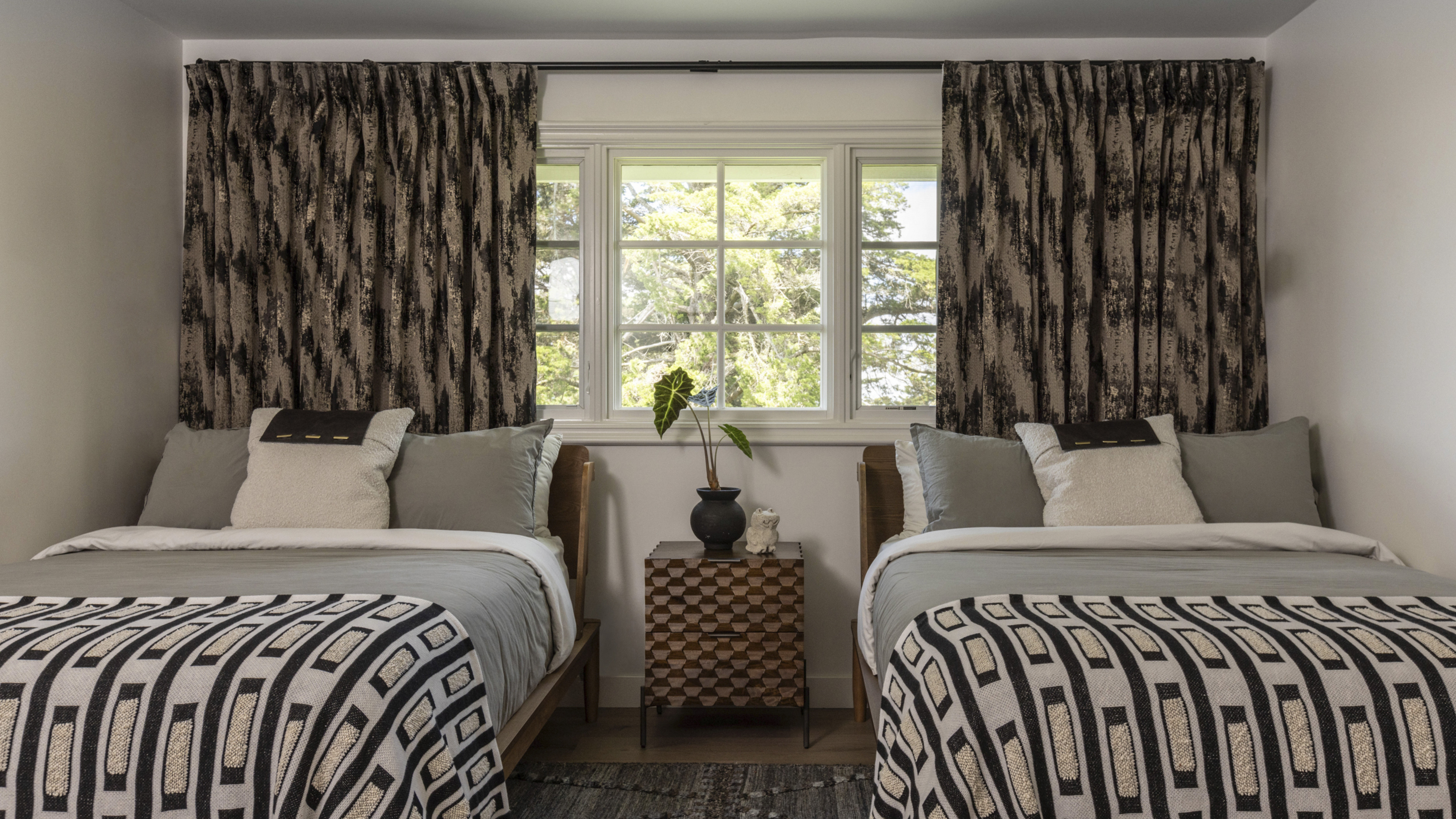 The biggest curtain trends to follow in 2025 – 8 key looks to shop that will instantly elevate your rooms
The biggest curtain trends to follow in 2025 – 8 key looks to shop that will instantly elevate your roomsThese are the colors, styles, and materials to embrace in your windows this year if you want desirable drapes, plus our favorite places to shop the trends
By Lilith Hudson
-
 Reese Witherspoon upgraded a small corner into a cozy reading nook – designers say you can replicate her 'ultimate little escape' (from $18)
Reese Witherspoon upgraded a small corner into a cozy reading nook – designers say you can replicate her 'ultimate little escape' (from $18)'It’s all about comfort, calm, and just the right amount of cozy': You only need three things to follow Reese's example – and it's not only for book lovers
By Megan Slack